Endoscopy (UGI Endoscopy) Cost in Malaysia from top hospitals starts from MYR 7065 (USD 1500)approx
.Treatment cost
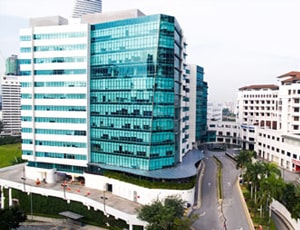
Parkway Pantai located in Kuala Lumpur, Malaysia is accredited by JCI. Also listed below are some of the most prominent infrastructural details:

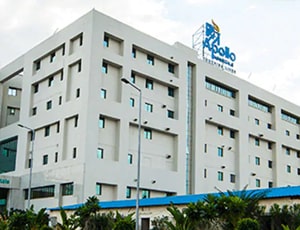
The cost for Endoscopy (UGI Endoscopy) ranges from USD 1570 - 1860 in Apollo Hospital
Apollo Hospital located in Chennai, India is accredited by JCI, NABH. Also listed below are some of the most prominent infrastructural details:
DOCTORS IN 13 SPECIALITIES
FACILITIES & AMENITIES
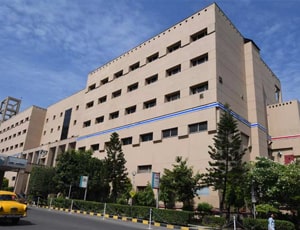
The cost for Endoscopy (UGI Endoscopy) ranges from USD 1560 - 1800 in Apollo Multispecialty Hospitals
Apollo Multispecialty Hospitals located in Kolkata, India is accredited by JCI, NABH. Also listed below are some of the most prominent infrastructural details:
DOCTORS IN 13 SPECIALITIES
FACILITIES & AMENITIES
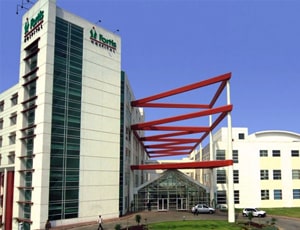
The cost for Endoscopy (UGI Endoscopy) ranges from USD 1540 - 1840 in Fortis Hospital
Fortis Hospital located in Noida, India is accredited by ISO, NABH. Also listed below are some of the most prominent infrastructural details:
DOCTORS IN 12 SPECIALITIES
FACILITIES & AMENITIES

The cost for Endoscopy (UGI Endoscopy) ranges from USD 1610 - 1850 in Indraprastha Apollo Hospital
Indraprastha Apollo Hospital is known for delivering treatment to over 200,000 patients every year; 10,000 of which are generally medical tourists. The efficient team of doctors has the record of 99.6 percent success rate. Indraprastha Apollo Hospital deals in treatment of over 50 specialities.
Let’s see some of the features of the infrastructure:
DOCTORS IN 14 SPECIALITIES
FACILITIES & AMENITIES
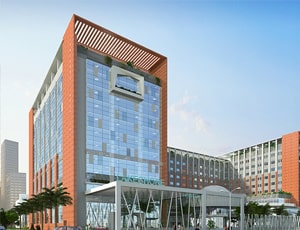
The cost for Endoscopy (UGI Endoscopy) ranges from USD 1540 - 1930 in VPS Lakeshore Hospital
VPS Lakeshore Hospital located in Kochi, India is accredited by NABH. Also listed below are some of the most prominent infrastructural details:
DOCTORS IN 13 SPECIALITIES
FACILITIES & AMENITIES
With about 80,000 m 2 , it is equipped with the highest sanitary technology and offers a wide portfolio of services-
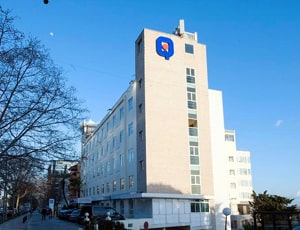
Apart from in-detail treatment procedures available, Quironsalud Marbella Hospital located in Marbella, Spain has a wide variety of facilities available for International Patients. Some of the facilities which are provided by them are Accommodation, Airport Transfer, Choice of Meals, Interpreter, SIM, TV inside room. Also listed below are some of the most prominent infrastructural details:
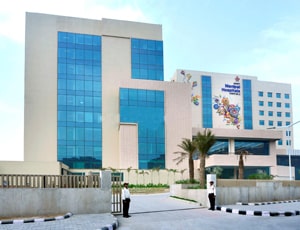
The cost for Endoscopy (UGI Endoscopy) ranges from USD 1580 - 1820 in Manipal Hospital, Dwarka
Manipal Hospital, Dwarka located in New Delhi, India is accredited by NABH. Also listed below are some of the most prominent infrastructural details:
DOCTORS IN 13 SPECIALITIES
FACILITIES & AMENITIES
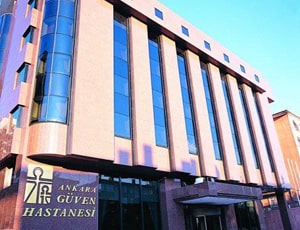
The cost for Endoscopy (UGI Endoscopy) ranges from USD 1560 - 2010 in Guven Hospital
Started as a small hospital and has become a large general Hospital with-
DOCTORS IN 14 SPECIALITIES
FACILITIES & AMENITIES
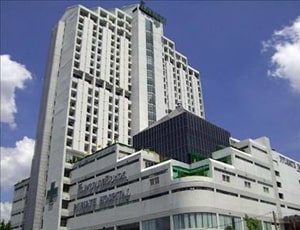
Piyavate Hospital located in Bangkok, Thailand is accredited by JCI. Also listed below are some of the most prominent infrastructural details:
Medicine Centre: Piyavate Hospital provides advanced holistic treatment for their patients. They offer a complete range of services and physicians that specialize in various fields like the endocrine system, the nervous system, kidney function, cardiovascular care, respiratory and digestive system. They pride themselves for the familial care that they provide to their patients.
Fertility and In-Vitro Fertilization Centre: Helping the couples who walk into the Piyavate Hospital to achieve their dream of having a family. They have a medical team that specializes in male and female fertility. They offer consultation services, fertility check-up for both men and women and complete IVF services. They have advanced IVF cycle treatment facilities that offer a high rate of success.
Bone and Joint Institute: Piyavate Hospital houses one of the frontrunners in Orthopaedic health care in all of SouthEast Asia. They offer a wide range of services and surgeries in their bone and joint institute that include hand surgery, hip and knee replacement surgery, spinal cord surgery, upper extremity surgery, arthroscopic surgery and sports medicine.
Eye and Lasik Centre: Piyavate Hospital is fully equipped with the latest and most advanced technology for eye care and houses highly skilled ophthalmologists, sub-specialists and qualified nurses.
Physical Therapy and Rehabilitation Centre: One of the first hospitals to be equipped with the Hybrid Assistive Limb technology that will help a neurologically challenged patient to control the rehabilitation robot limb with a signal from their brain. The Physical Therapy and Rehabilitation Centre at Piyavate Hospital uses this system encourage patients to regain muscle memory to walk and function normally.
Amenities for Patient’s Family:
Piyavate Hospital also offers additional apartment facilities to house the kin of the patients who come to visit them from distant places. A restaurant, a flower shop and a café are a few of the other amenities provided by the hospital.
These are the most popular services offered by the Piyavate Hospital in Bangkok, Thailand. They also provide a plethora of other medical services that are listed below:
Diabetic Foot Centre
Check-up centre
Urology Centre
Heart Institute
Paediatric Centre
Obstetrics and Gynaecology Centre
Surgery Centre
Ear Nose Throat Centre
Haemodialysis Centre
Dental Centre
X-Ray Centre
Gastroenterology Centre
Cancer Centre
Neonatal Intensive Care Unit (NICU)
Emergency Services and Centre
Tele-medicine
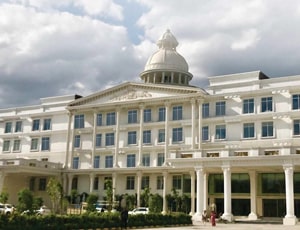
The cost for Endoscopy (UGI Endoscopy) ranges from USD 1620 - 1980 in Dr. Rela Institute and Medical Centre
The mega-structure of RIMC serves as a hospital as well as an educational institute. Hence, it offers a huge array of medical services and facilities to cater to the needs of its patients.
Fertility Services - RIMC specializes in both male and female fertility and in procedures like IntraCytoplasmic Sperm Injection (ICSI), Uterine Transplants, Preimplantation genetics and Laser Assisted Hatching (LAH).
Anaesthesia and ICU - The ICU rooms in RIMC are equipped to serve the individual needs of every patient. They boast the largest liver transplant ICU in India and a specific ICU dedicated to pediatrics multi-organ transplants.
Radiology and Imaging Sciences - RIMC has the infrastructure to support high-quality scans including 128 Slice CT, Cardiac MRI, and 3 Tesla MRIs.
Blood Bank and Transfusion Medicine - RIMC has an active blood bank system with facilities dedicated to Blood Component Separation and Therapy. They use high-end technology like the Automated 1H500 Analyser and have a separate Therapeutic Apheresis Unit.
Advanced Endoscopy - Dr. Rela Institute and Medical Centre has one of the most advanced hospital facilities with an individual healthcare unit specifically dedicated to Endoscopy. Advanced procedures like Spyglass Cholangioscopy, Laser therapy, Endoscopic Ultrasound, Capsule Endoscopy, and special ERCP and EUS Suite.
Some of the other healthcare facilities, departments, and services offered by Dr. Rela Institute and Medical Healthcare are listed below:
Apart from these facilities, Dr. Rela Institute and Medical Centre also have a preventive health check lounge, 72 consultation suites, and 360 degrees including lab facilities specifically for outpatients.
Visit Dr. Rela Institute and Medical Centre in Chromepet, Chennai today and find the best care for you and your loved ones.
SPECIALITIES
FACILITIES & AMENITIES
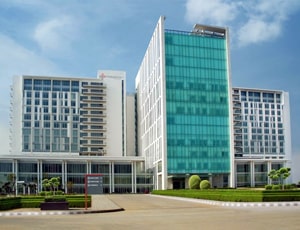
The cost for Endoscopy (UGI Endoscopy) ranges from USD 1620 - 1980 in Medanta - The Medicity
Medanta - The Medicity located in Gurugram, India is accredited by JCI, NABH. Also listed below are some of the most prominent infrastructural details:
DOCTORS IN 14 SPECIALITIES
FACILITIES & AMENITIES
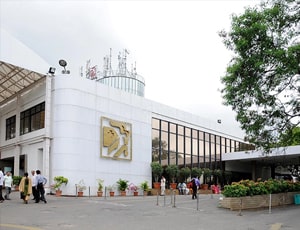
The cost for Endoscopy (UGI Endoscopy) ranges from USD 1590 - 1840 in Apollo Hospitals
Apollo Hospitals located in Hyderabad, India is accredited by JCI, NABH. Also listed below are some of the most prominent infrastructural details:
DOCTORS IN 14 SPECIALITIES
FACILITIES & AMENITIES
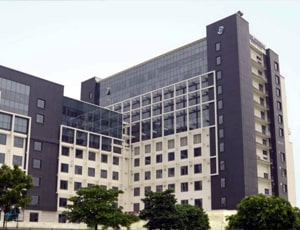
The cost for Endoscopy (UGI Endoscopy) ranges from USD 1620 - 1930 in Venkateshwar Hospital
Venkateshwar Hospital located in New Delhi, India is accredited by NABH. Also listed below are some of the most prominent infrastructural details:
DOCTORS IN 13 SPECIALITIES
FACILITIES & AMENITIES
Gastroscopy is also called as upper gastrointestinal endoscopy. Gastric endoscopy test is a diagnostic procedure used by the physician to inspect the inside of the throat, esophagus, stomach, and upper intestine. While endoscopy test is considered as a surgical procedure, it does not involve any incision. Instead the physician will pass a flexible tube called endoscope or gastroscope through the mouth, stomach, and digestive tract. The tube has a tiny video camera mounted on its tip. It also contains a small tool that is used for taking samples. Because the opening of the mouth to small intestine is usually unobstructed, the doctor uses the endoscope to inspect the upper half of the digestive system.
When would a doctor suggest for Gastroscopy?
The doctor suggests for gastroscopy procedure if you have any of these symptoms
Duration: 5 to 30 minutes
The doctor first sprays local anesthetic in your throat. You may also be given sedative through a fine tube called cannula in the arm region. At this stage, the nurse may provide extra oxygen because few sedatives affect your breathing.
The physician will instruct you to sleep on your left side with head bent slightly forward. Then the doctor places a guard between your teeth as it protects the teeth and the lips. The doctor will then pass the gastroscope through the mouth until it rests at the back of the throat. Then the doctor instructs you to swallow the tube into esophagus and down towards the stomach. The doctor inflates the stomach with air through the gastroscope to examine the lining of the stomach. The camera lens present at the end of the gastroscope will send images to the monitor that are used by the doctor to examine the lining of the esophagus, stomach, and duodenal region. If required, the doctor may take a small tissue sample using special instruments passed through the gastroscope. The samples collected will be sent for testing in the laboratory.
If necessary, the doctor may take a biopsy (small sample of tissue) or remove small growths of tissue called polyps using the instruments passed inside the gastroscope. The collected samples will be sent to a laboratory for testing.
Alternative applications
Other procedures that can be carried out through gastroscope are;
Stretching the narrowed areas of the esophagus, stomach
Treating the blood vessels or ulcers using injections or heat
Aftercare and Recovery
Limitations and Risks
You may have very rare complications as the specialized doctors perform the test. However, mild sore throat, and bleeding at the biopsy site is quite common.
Complications related to the sedatives used during the test such as tear in the gastrointestinal lining may also be seen.
Be alert in recognizing early signs of possible symptoms and meet your doctor immediately if there are aggravating symptoms such as chest or abdominal pain, difficulty in swallowing, blood in your feces etc.
Endoscopy cost and colonoscopy cost varies from hospital to hospital and also depends on the type of hospital that you decide to get treated in.
Ask your healthcare adviser for the best multiple options and choose the one that meets your expectations
The cost of Endoscopy (UGI Endoscopy) in Malaysia starts from $1500. Many multispeciality hospitals in Malaysia that are MSQH certified are approved and most sought after for treating international patients with Endoscopy (UGI Endoscopy)
The cost of Endoscopy (UGI Endoscopy) in Malaysia may differ from one medical facility to the other. There are many hospital that cover the cost of pre-surgical investigations of the patient in the treatment package. The Endoscopy (UGI Endoscopy) cost in Malaysia includes the cost of anesthesia, medicines, hospitalization and the surgeon's fee. A prolonged hospital stay due to delayed recovery, new diagnosis and complications after surgery may increase the cost of Endoscopy (UGI Endoscopy) in Malaysia.
Endoscopy (UGI Endoscopy) in Malaysia is offered by multiple hospitals across the country. The following are some of the most renowned hospitals for Endoscopy (UGI Endoscopy) in Malaysia:
The recovery of the patient many vary, depending on several factors. However, on an average, patient is supposed to stay for about 5 days in the country after discharge. This period is important to conduct all the follow-up tests to ensure that the surgery was successful and the patient can go back to the home country.
There are certain additional cost that the patient has to pay apart from the Endoscopy (UGI Endoscopy) cost. The per day extra expenses in Malaysia per person are about USD 50 per person.
There are many cities that offer Endoscopy (UGI Endoscopy) in Malaysia, including the following:
The average duration of stay at the hospital after Endoscopy (UGI Endoscopy) is about 1 day for proper care and monitoring. This phase is important to ensure that the patient is recovering well and is clinically stable. During this time, several tests are performed before the patient is deemed suitable for discharge.
There are more than 1 hospitals that offer Endoscopy (UGI Endoscopy) in Malaysia. The above listed clinics are approved to perform the surgery and have proper infrastructure to handle Endoscopy (UGI Endoscopy) patients. Apart from good services, the hospitals are known to follow all standard and legal guidelines as dictated by the local medical affairs body or organization.